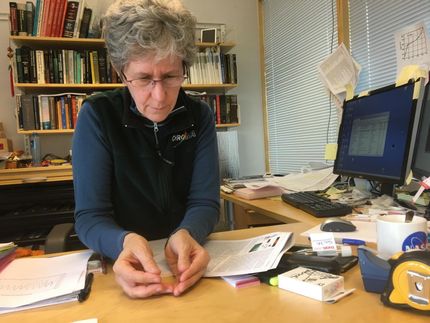PolyIC, BASF, Evonik Industries, Elantas Beck and Siemens form alliance project for printed electronics
Radio frequency identification tags: the next generation
Advertisement
PolyIC, BASF, Evonik Industries, Elantas Beck and Siemens have announced the launch of a new German Federal Ministry of education and Research (BMBF)-sponsored alliance project called MaDriX to advance the development of high-performance printable Radio Frequency Identification (RFID) tags.
The current generation of RFID tags contain silicon chips and are mainly used for high-priced products because of the complex manufacturing processes involved. Printed electronic technology will reduce the cost of RFID tag production thanks to the development of new materials such as electrically conductive and semiconducting plastics that can be employed in high throughput printing processes. This will make printed radio frequency identification tags suitable for use in cheaper consumer goods so that they may even come to replace printed barcodes.
PolyIC leads the consortium engaged in the three-year joint project. The total investment sum amounts to some EUR15 million, with the BMBF contributing approximately EUR8 million. The project is funded as part of the BMBF's 5th Framework Program "Key Technologies - Research for Innovations, Communications Technology Sector." The German Aerospace Center, DLR, is acting as project sponsor. With MaDriX, the companies involved in the alliance and the federal ministry will secure Germany's current leadership as a research base in the printable electronics sector.
The close cooperation between the companies involved is a key to the success of the MaDriX project. PolyIC engages with the issues of component characterization, process development and setting up demonstrators. BASF, Evonik Industries and Elantas Beck will supply new materials to produce semiconductors and insulators for use in electronic circuits. Siemens is developing new real-time visual print inspection processes for quality control in the printing process. A number of universities and research institutes are also involved in the MaDriX project.
Most read news
Topics
Organizations
Other news from the department science

Get the chemical industry in your inbox
By submitting this form you agree that LUMITOS AG will send you the newsletter(s) selected above by email. Your data will not be passed on to third parties. Your data will be stored and processed in accordance with our data protection regulations. LUMITOS may contact you by email for the purpose of advertising or market and opinion surveys. You can revoke your consent at any time without giving reasons to LUMITOS AG, Ernst-Augustin-Str. 2, 12489 Berlin, Germany or by e-mail at revoke@lumitos.com with effect for the future. In addition, each email contains a link to unsubscribe from the corresponding newsletter.































































